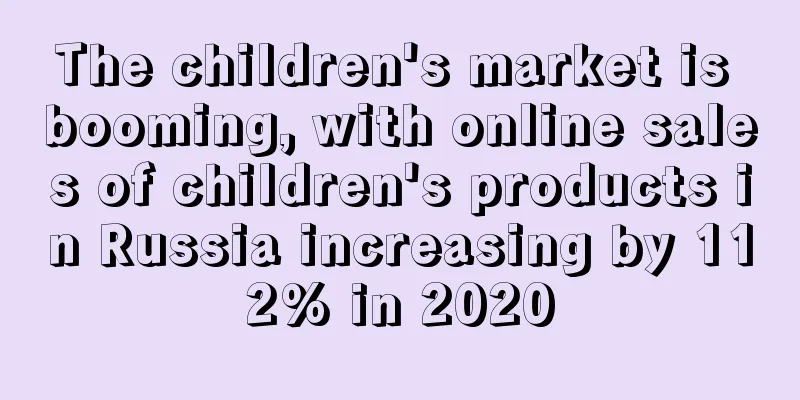During the epidemic, the United States spent $1.7 trillion online, and three major categories accounted for more than 40%

|
During the epidemic, offline consumption was restricted, which promoted the development of the global e-commerce market, and the United States was no exception. Recently, Adobe released e-commerce data in the United States during the epidemic.
Data shows that during the epidemic period from March 2020 to February 2022, American consumers spent $1.7 trillion online, an increase of $609 billion over the total of 2018 and 2019. Among them, demand remained strong in 2021, with online spending reaching $885 billion, an increase of 8.9% year-on-year.
Looking at specific categories, the popular categories in 2021 are electronics, clothing and groceries, which account for 41.8% of the share.
As the largest category in e-commerce, the epidemic has further consolidated its leading position in the e-commerce market. In 2020 , sales of electronic products reached US$152.7 billion, a year-on-year increase of 26.8% . In 2021, it reached US$165 billion, accounting for 18.6% of the overall e-commerce share, slightly lower than 18.8% in 2020 and 21% in 2019 , mainly due to the increase in other categories .
U.S. consumers now spend an average of $13.6 billion per month on electronics , up from $9.9 billion before the pandemic. Adobe expects the category to reach $174 billion in 2022.
Because of staying at home, the proportion of clothing demand has declined. In 2020 , it increased by 9.1% year-on-year, with sales reaching US$115.8 billion . In 2021, the growth was more moderate, at US$126.2 billion, accounting for 14.3% of the entire e-commerce share, down from 18.5% in 2019 and the same as 14.2% in 2020.
Although its share has declined, apparel remains a major category, with consumers spending an average of $10.2 billion per month , up from $8.7 billion before the pandemic , and sales are expected to reach $130 billion in 2022.
2020 was a breakout year for groceries, with online spending of $73.7 billion, up 103% year-over-year. This grew to $79.2 billion in 2021. Groceries now account for 8.9% of overall e-commerce , up from 6.3% in 2019 and down slightly from 9.1% at the start of the pandemic in 2020.
Consumers spend an average of $6.7 billion per month on groceries, up from $3.1 billion before the pandemic , and sales are expected to reach $85 billion in 2022 .
Electronic products, clothing and groceries are also popular categories on major e-commerce platforms . Among them, there are more active sellers in the groceries category and the competition is the most intense. USA E-commerce epidemic |
<<: The latest trends in American beauty care products are released
>>: Truck drivers in many European countries went on strike, causing transport disruptions
Recommend
What is perfe-hair? perfe-hair Review, Features
Perfe-hair is a brand founded in May 2016. It prov...
Amazon tops BrandZ's most valuable retail brand list for three consecutive years
2020 is the year when e-commerce has accelerated ...
Emergency! Parts of India have announced a blockade again!
Recently, the number of confirmed cases of COVID-...
Social media e-commerce is flooded with fakes, and it is imperative for platforms to crack down on counterfeiting
The UK Intellectual Property Office (UKIPO) recen...
What is Dealdoktor? Dealdoktor Review, Features
Dealdoktor is a German Amazon off-site promotion d...
What is OMS? OMS Review, Features
OMS, also known as Order Management System, is a p...
The beauty and nail art trend has become popular among European and American millennials.
The demand for women’s hair and manicure surges U...
What is Aeropostale? Aeropostale Review, Features
<span data-docs-delta="[[20,"Aeropostale&q...
What is Snoopy Supply Chain? Snoopy Supply Chain Review, Features
Snoopy Supply Chain Management Co., Ltd. is deter...
Amazon tops the search list, with technology products being the most popular!
This year, due to the epidemic and tight supply c...
US inflation trend slows down! Online prices drop for 9 consecutive times
Recently, Adobe released the latest Adobe Digital...
What is Dongguan Junlin International Logistics Co., Ltd.? Dongguan Junlin International Logistics Co., Ltd. Review, Features
Dongguan Junlin International Logistics Co., Ltd. ...
Weird! The buyer suddenly claimed that he received the wrong product and wanted to exchange it for an order placed 7 months ago...
Recently, the editor learned from the Amazon foru...
Walmart is ready to enter the "metaverse" to shape the emerging shopping experience
Walmart, a major retailer, applied for several ne...
TikTok is testing new e-commerce features
According to foreign media reports, TikTok has re...









